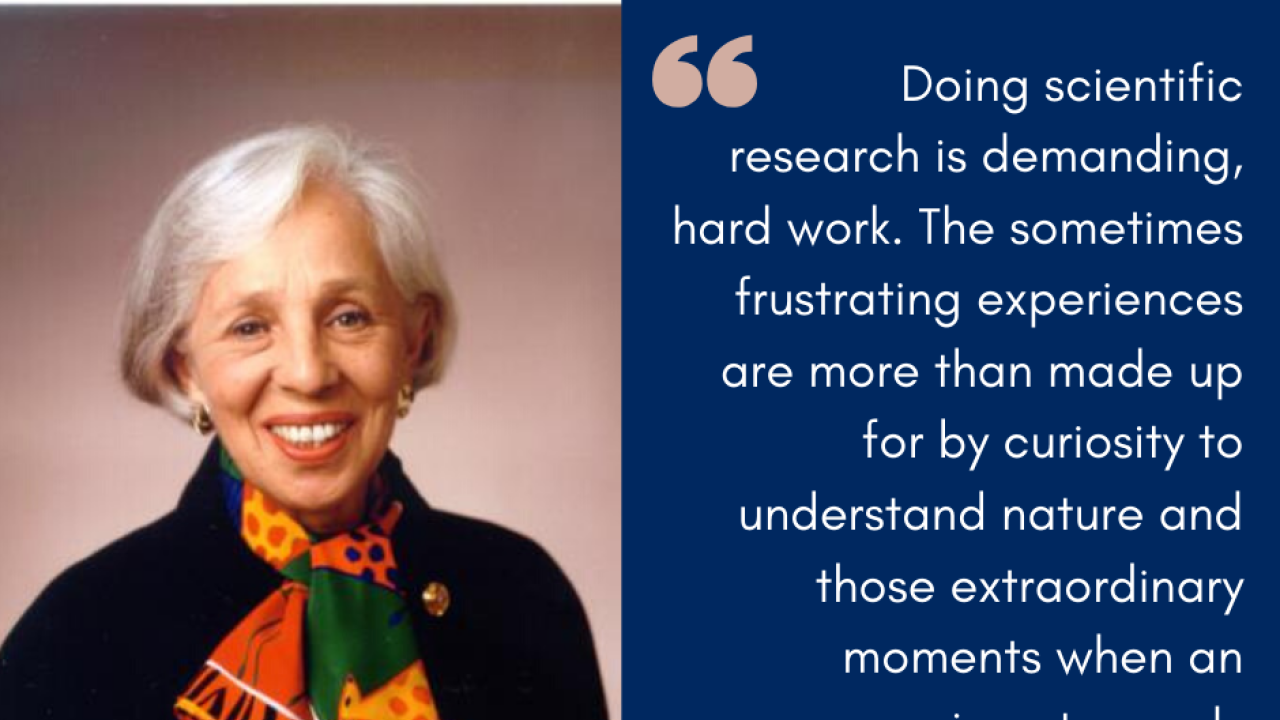
Why be a scientist? Nearly every scientist has a different answer and a different inspiration, drawn from varied careers, outlooks, and experiences. For its 40th anniversary in 2004, ICTP published the book One Hundred Reasons to be a Scientist, a collection of 100 essays from many eminent physicists and mathematicians with a connection to ICTP. The book is a source of many insights from the lives and careers of scientists, including Mildred Dresselhaus, Freeman Dyson, Vera Rubin, and Francis K.A. Allotey. The authors discuss what led them to study science, the difficulties they encountered and overcame, and their passions and hopes for the future.
We are revisiting twenty of these stories highlighting one of them every week, sharing inspirations from the essays and showcasing the words of these great scientists. During the uncertainty of the current global pandemic, the words will hopefully help researchers feel less alone in their scientific path.
We are presenting this week the story of Maxine F. Singer, an American molecular biologist, best known for her contributions to solving the genetic code and for leading the Carnegie Institution for Science. She has been awarded several prizes, such as the AAAS Award for Scientific Freedom and Responsibility and the National Medal of Science. In 2002, Discover magazine recognized her as one of the 50 most important women in science.
In her essay, Singer tells how her school teachers and the academic environment during university gave her the chance to work with some of the most interesting scientists in the field of biochemistry in the USA. You can read it here.
If you want to learn more about Maxine Singer, here you can watch the lecture she gave at the Pontifical Academy of Sciences Plenary Session in 2014, on “Genes in the garden”.
Here you can also find an interview by the American Society for Cell Biology (ASCB), that awarded Singer the Public Service Award in 2008.
Finally, if you are interested in learning about 99 more scientists and what inspired them, you can find the whole book in electronic format for free download on ICTP’s library website, in English, Italian and Urdu.
Here you can read the previous stories:
















